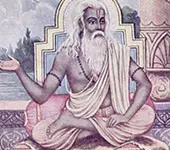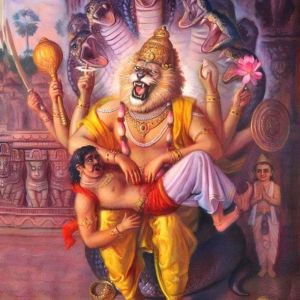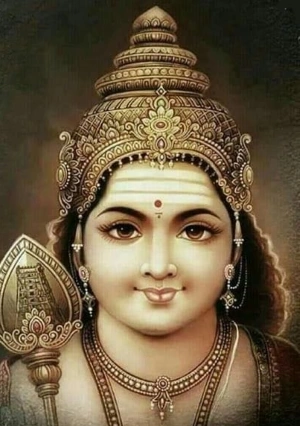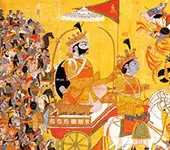Recommended for you
Everyone thinks that the child can be pushed around
 Click here to know more..
Click here to know more..
Divine Armor: Narasimha's Mantra

om namo nri'sim'hasim'haaya sim'haraajaaya narakeshaaya namo namaste . om namah' kaalaaya kaaladam'sht'raaya karaalavadanaaya ugraaya ugraveeraaya ug....
Click here to know more..Guha Ashtakam

shaantam shambhutanoojam satyamanaadhaaram jagadaadhaaram jnyaatri'jnyaananirantara- lokagunaateetam gurunaateetam. valleevatsala- bhri'ngaaranyaka- t....
Click here to know more..
English Topics
Mahabharatam
Click on any topic to open
- 96 Two Curses That Worked against Karna
- 95 What is behind Calling the Five Brothers the Pandavas
- 94 Give up an Individual IF....
- 93 Fascinating Birth Story of the Kauravas
- 92 Overcoming Grief - Lessons from King Senajit's story
- 91 Yayati's Wisdom
- 90 Yayati's Story
- 89 Brahmacharis Can Bless And Curse
- 88 Human Nature - Comples Mix Of Good And Bad
- 87 Results Of Good Karma
Please wait while the audio list loads..
30
Ganapathy
Shiva
Hanuman
Devi
Vishnu Sahasranama
Mahabharatam
Practical Wisdom
Yoga Vasishta
Vedas
Rituals
Rare Topics
Devi Mahatmyam
Glory of Venkatesha
Shani Mahatmya
Story of Sri Yantra
Rudram Explained
Atharva Sheersha
Sri Suktam
Kathopanishad
Ramayana
Mystique
Mantra Shastra
Bharat Matha
Bhagavatam
Astrology
Temples
Spiritual books
Purana Stories
Festivals
Sages and Saints
